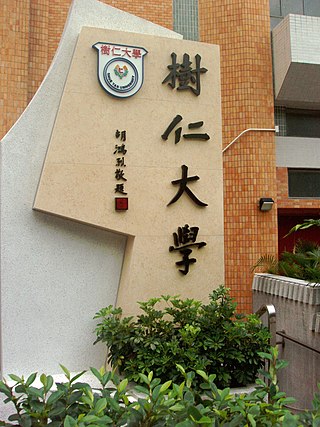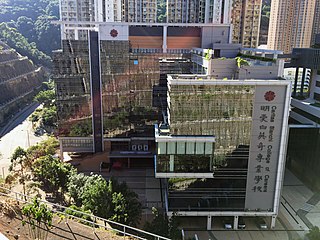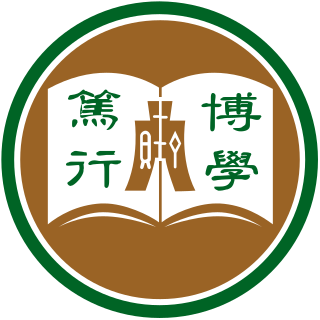Post-secondary Institutions
Note 1: The Open University of Hong Kong was established and financed by the Hong Kong Government from 1989 to 1993. Since then, it has been self-financed but still receives some irregular subsidies and loans from the government.
Note 2: In January 2007, the Hong Kong government offered a one-off grant of HK$200 million to establish a general development fund to support the academic development and improve the campus facilities of Hong Kong Shue Yan University.
Note 3: In August 2017, the Hong Kong government announced 6 self-funded institutions, Caritas Institute of Higher Education, Chu Hai College of Higher Education, Hang Seng Management College, The Open University of Hong Kong, Tung Wah College and Technological and Higher Education Institute of Hong Kong will be included in the Study Subsidy Scheme for Designated Professions/Sectors (SSSDP) from 2018. [6]
Note 4: In July 2017, the Hong Kong government announced that the Non-means-tested Subsidy Scheme for Self-financing Undergraduate Studies in Hong Kong will include full-time self-financing degree programmes from 15 (non-UGC funded) institutions for the cohort to be admitted in the 2017/18 academic year. [7]

The Hong Kong Polytechnic University is a public research university in Hung Hom, Kowloon, Hong Kong. The university is one of the eight government-funded degree-granting tertiary institutions in Hong Kong. Founded in 1937 as the first Government Trade School, it is the first institution to provide technical education in Hong Kong. In 1994, the Legislative Council of Hong Kong passed a bill which granted the former Hong Kong Polytechnic official university status.

The Joint University Programmes Admissions System, commonly known as JUPAS (聯招), is a unified system for applying for full-time undergraduate programmes in Hong Kong. As of the 2017 admission cycle, all government funded degrees and sub-degrees provided by University Grants Committee (UGC) member institutions, and most of the other full-time degrees provided by institutions in Hong Kong are under the application system in JUPAS.

St. Berchmans College, most commonly known as SB College, is one of the first Autonomous Colleges, situated in Changanasserry, 17 km from Kottayam, in Kerala, India. Established in 1922, the college is considered to be one of the oldest and premier institutions of higher education in India. The University Grants Commission (UGC) identified the College under its “College with Potential for Excellence” scheme. UGC and the Government of Kerala granted autonomy to the college on 13 June 2014. The college celebrated its centenary in the academic year of 2022.

Saint Francis University is a private university in Tseung Kwan O, New Territories, Hong Kong.

Hong Kong Shue Yan University is a private liberal arts university on North Point, Hong Kong Island, Hong Kong.

Hong Kong Metropolitan University (HKMU) is a public university in Ho Man Tin, Kowloon, Hong Kong. It is the only self-financing university set up by the Hong Kong government.
Hong Kong Chu Hai College is a private degree-granting institute in Tuen Mun, New Territories, Hong Kong. At present, Chu Hai College is recognised as an Approved Post Secondary College under the Post Secondary Colleges Ordinance.
Higher education in Hong Kong means any education higher than secondary education, including professional, technical, and academic. It is the highest level of education in Hong Kong, regulated under the Hong Kong Law.
The University Grants Committee of Hong Kong is a non-statutory advisory committee responsible for counselling the Government of Hong Kong on the financing and expansion needs of its subsidised higher education institutions. Appointed by the Chief Executive of Hong Kong, its members consist of local and overseas academics, university administrators, and community leaders.
The idea of establishing Catholic university in Hong Kong was first made by the late Bishop Francis Hsu, a Catholic priest in Hong Kong. By 2015, only Caritas Hong Kong was still endeavoring to achieve this goal, which they achieved in 2024.

Caritas Bianchi College of Careers (CBCC) was established in 1971 and has been providing post-secondary education since then. At present, it mainly offers sub-degree programmes in three general disciplines: business and hospitality management, design and health sciences. It is located at Tiu Keng Leng, Tseung Kwan O, near Tiu Keng Leng station.
Hong Kong's medical infrastructure consists of a mixed medical economy, with 12 private hospitals and 43 public hospitals. Hong Kong has high standards of medical practice. It has contributed to the development of liver transplantation, being the first in the world to carry out an adult to adult live donor liver transplant in 1993. Both public and private hospitals in Hong Kong have partnered with the Australian Council on Healthcare Standards (ACHS) for international healthcare accreditation. There are also polyclinics that offer primary care services, including dentistry.

The Hang Seng University of Hong Kong (HSUHK) is a private liberal arts-oriented university in Sha Tin, New Territories, Hong Kong.

The Education functional constituency, formerly called Teaching from 1985 to 1995, is a functional constituency in the elections for the Legislative Council of Hong Kong. It was one of the 12 functional constituency seats created for the 1985 Legislative Council election. Since 1998, It has been the functional constituency with the most registered voters, including registered teachers, principals, managers of schools, full-time academic staff, members of the councils of the universities in Hong Kong and board of governors of the institutes of higher educations. In 2020, it had 85,698 registered voters, as compared to the Finance constituency who had only 121 voters.

Tung Wah College is a private, self-financing college in King's Park, Kowloon, Hong Kong. It was established by the Tung Wah Group of Hospitals in 2010 and registered under the Post-Secondary Colleges Ordinance.
Caritas Institute of Community Education is a self-financing institution of higher education based in Hong Kong. It was created on 1 January 2014, by combining all community education schools managed by Caritas Hong Kong. The Institution aims to provide a combination of sub-degree and vocational training programmes. Courses offered by CICE are recognised by the Hong Kong Council for Accreditation of Academic and Vocational Qualifications up to QF Level 4.

Hong Kong College of Technology is a non-profit-making educational institution under HKCT group. Founded in 1947 as Workers’ Night School, HKCT has been dedicated to the development of vocational and professional education for over 75 years. It offers a diverse ranged of vocational-specific programmes catering to individuals of different ages, backgrounds, and social strata, with the aim of progressing towards becoming a leading Vocational and Professional Education and Training (VPET) university.
The Federation for Self-financing Tertiary Education (FSTE) is a higher education institutions alliance in Hong Kong. The alliance was established as The Federation for Continuing Education in Tertiary Institutions (FCE) in 1994. The FSTE aims to advance the quality, promote collaboration and share practices in the self-financing tertiary education sector in Hong Kong.
Self-Financing Higher Education in Hong Kong refers to educational programmes at the sub-degree level and above provided by local self-financing entities. Since the government announced the target of enabling 60% of secondary school graduates to receive higher education, the self-financing post-secondary education sector has experienced significant expansion with the aim of accommodating the emerging needs of the society.










